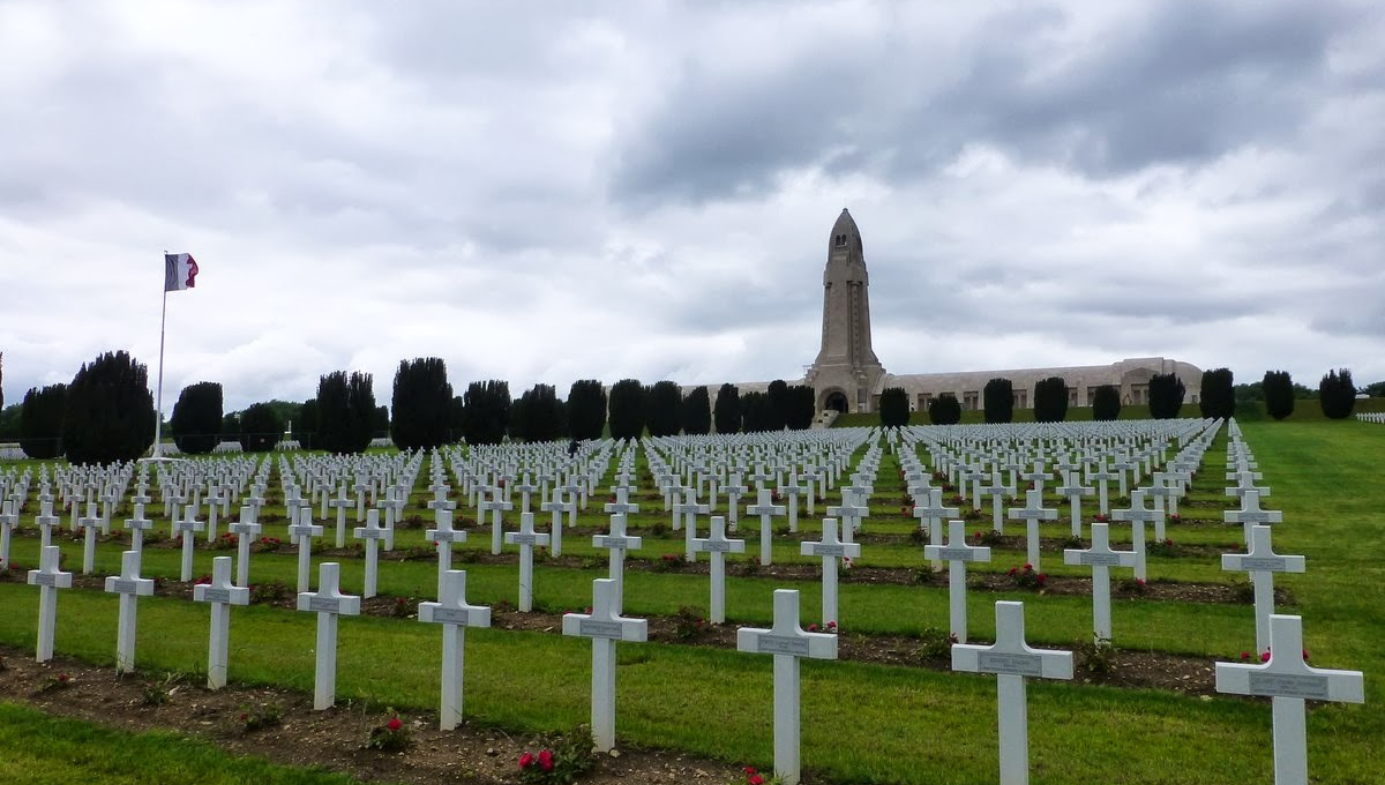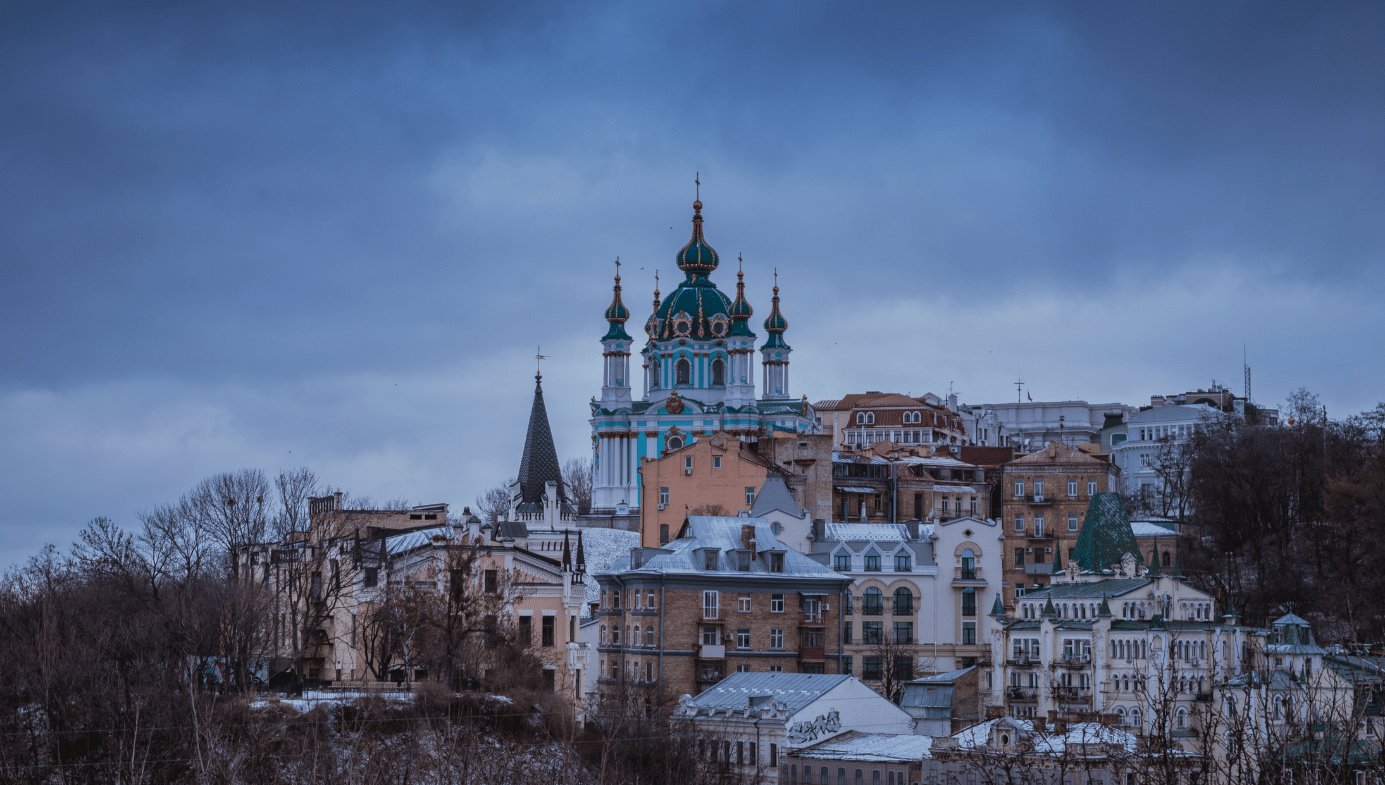Politics
Ukraine’s Verdun
It is not just Western officials who worry that Zelensky’s determination to defend Bakhmut at all costs will cripple his army’s effectiveness.

An invading army, unable to advance its lines elsewhere, masses its men and materiel in an attempt to overwhelm a small city jutting into their western front. The initial assault makes dramatic gains but is soon bogged down in the face of determined resistance from defending forces. The battle stretches from days into weeks and then months, and in the process, it undergoes a transfiguration. The war’s longest and deadliest episode is its most strategically meaningless but also its most symbolically meaningful.
For more than seven months, such a battle has been raging in Ukraine’s eastern city of Bakhmut between Russian and Ukrainian forces, and it has come to resemble one of the most infamous military campaigns of the First World War.
In the early morning of February 21st, 1916, the German army launched an assault on the eastern French city of Verdun, recently recreated in the remake of All Quiet on the Western Front. The brainchild of Germany’s new chief of staff, Erich von Falkenhayn, the attack began with an unremitting artillery barrage that pulverized the wooded fields into a lunar landscape. “Imagine if you can,” wrote one French officer, “a steadily growing storm raining only paving stones, only building blocks.” After a million—yes, a million—of these building blocks fell on French lines, German troops advancing toward Verdun, many with their rifles still in their slings, captured the massive fort of Douaumont without firing a shot.
The French forces re-established their defensive lines under the leadership of General Philippe Pétain. But what exactly were they defending at such tremendous human cost? Advances in artillery warfare had made the fortifications at Verdun mostly redundant, and the city sat in a nearly indefensible salient, vulnerable to attack on three sides. If Verdun was of strategic value, why was it mostly ignored by the French high command during the first year of the war?
The same question hovers over Falkenhayn’s decision. Why did he bet the House of Hohenzollern on taking the forts of Verdun? In his postwar memoir, Falkenhayn explained that the butchery over this strategically and historically worthless piece of real estate was deliberate. In a phrase as illogical as it was monstrous, Falkenhayn claimed that his aim was Ausblutung—“to bleed the French white.” Sooner or later, he argued, the French high command would either retreat or counterattack elsewhere, which would again allow a war of movement instead of stasis.
Yet as the historian Paul Jankowski notes, there is no archival evidence that Falkenhayn intended this outcome in 1916. It was a strategic justification after the bloody fact. Similarly, Verdun only became a “sacred” site after the French political leadership declared it to be one. Until then, as Pétain insisted, it was just a point on the map. And that map clearly indicated that the French ought to retreat so they could fight more effectively another day.
This was not to be, however. Both nations were bound by a manufactured necessity: the Germans believed they had to maintain their offensive, just as the French believed they had to resist it. Once the phrases Il ne passeront pas and On les aura were coined, no other currency could be used. Neither the French nor the German commanders, Jankowski suggests, had clear and compelling reasons for digging in their heels at Verdun. And so, reasons had to be found to explain their first and fatal decisions before the weight of the sunk-cost fallacy entrapped them all.

Over 10 terrible months, hundreds of thousands of soldiers were torched by flamethrowers, gassed by chlorine, mowed down by machine guns, and blown up or buried alive by more than 60 million artillery shells. Human bodies were so badly smashed and scattered that, after the war ended, only bones and skulls remained to be gathered and arranged in the ossuary at Douaumont. For years afterward, locals continued to stumble across unexploded shells and undiscovered cadavers. In the words of historian Antoine Prost, Verdun marked a transgression of the limits of the human condition.
The once obscure city of Bakhmut in Ukraine has become our century’s Verdun. Like the German and French governments a century ago, the Russian and Ukrainian governments have not given precise casualty figures for this particular battle. Western officials have said that, at times, hundreds of Ukrainians have been wounded and killed daily. The Latvia-based Russian-language news site Meduza, meanwhile, reports that the mercenary Wagner Group has lost 80 percent of its soldiers—increasingly drawn from prisons and labor camps—since it began operations at Bakhmut.
The Wagner Group’s Yevgeny Prigozhin boasts that Bakhmut is this war’s “meat grinder”—the same grim term the French soldiers used to describe Verdun—as he continues to throw wave after wave of untrained convicts at Ukrainian forces. (He seems to be unaware that the “meat,” at least for Falkenhayn, was supposed to be French.) The Ukrainians, on the other hand, refer to Bakhmut as their “fortress,” a claim echoed by President Volodymyr Zelensky during a surprise visit to the front.
Bakhmut itself has now been carved into a maze of trenches, sheltering Ukrainian soldiers from Russian artillery shelling as relentless as that of the Trommelfeuer. The phrase “Bakhmut holds”—like Pétain’s On les aura—perfectly captures the Ukrainian imperative and conveys both the glory and the tragedy of this particular battle. Pétain’s phrase, Jankowski observes, “became a self-fulfilling prophecy, an utterance that transformed a local into a national affair and rendered renunciation unthinkable.” 300,000 deaths later renunciation became even more unthinkable.
It is not just Western officials who worry that Zelensky’s determination to defend Bakhmut at all costs will cripple his army’s effectiveness. Just as Pétain thought that his government’s decision to hold Verdun was folly, some Ukrainian commanders feel the same way about Bakhmut. As one anonymous officer told a reporter from the Washington Post, “As for symbolism, to each his own … we have lost many friends in the defense of this city, so we do not want to surrender it now. But maybe a temporary withdrawal would save some of our people.”
A withdrawal from a town of no strategic importance would certainly save the lives of that officer’s soldiers. But just as that argument got overtaken by events at Verdun, saving lives no longer seems to be the point at Bakhmut. According to the tragic logic of such symbolism, each additional death at Bakhmut will make it only more imperative to hold. And to take.






